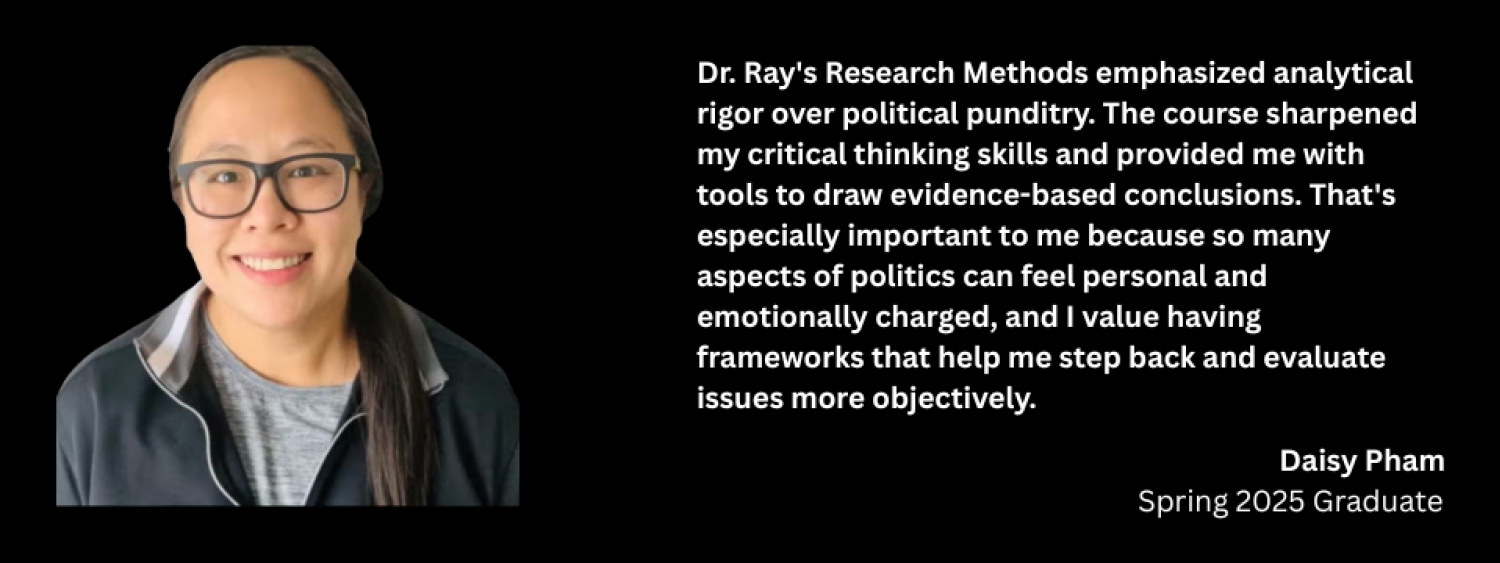♦ Summer Registration opens March 18th ♦
Guide to Course Numbering
At the University of Colorado Denver, courses for master's degree/graduate credit are numbered in the 5000s or above. Courses in the 4000s are for undergraduate credit. New Directions cross-lists many of our courses for both undergraduate and graduate credit, with undergraduates completing an adjusted level of work on assignments, or adjustments in the evaluation of those assignments, commensurate with their academic level. To ensure your credits count properly for your Master's degree, graduate students should always enroll in the 5000 level or above for all courses.
* Please note that because they are extended studies, the University of Colorado tuition assistance benefit (TAB) cannot be used to pay for New Directions classes.
Weekend Intensive Course Schedules
Weekend intensive courses meet in-person on Saturday and Sunday of the weekends below, from 9 am to 4 pm unless otherwise indicated. Courses meeet in Denver at various locations provided in your syllabus.
Spring 2026 Courses
PSCI 5434 - The Cooperative Movement: Politics and Policy (3 Credits) 
Explores the history, current status, and emerging developments in the cooperative movement, both domestic and global. Topics include the political, organizational, and financial challenges and opportunities facing worker, producer, and consumer cooperatives. Examines how cooperative enterprises have adopted both reformist and revolutionary responses to the capitalist system, and how legal regimes and grassroots movements shape the future of cooperative enterprises. Lecturer: Dr. Minsun Ji
 PSCI 5084/4084 - Local Government and Administration (3 Credits)
PSCI 5084/4084 - Local Government and Administration (3 Credits)
Local government leaders must plan for long-term community needs, manage staff and operations, and implement policy while engaging their communities in highly political contexts. Learn practical skills while tackling the biggest challenges facing local governments today, such as rapid shifts in state and federal landscapes, climate crises, emerging technologies. Lecturer: Christy Doon.
PSCI 5075/4075 - Gentrification and Social Equity (3 credits)
 Study causes and consequences of urban gentrification, and explore strategies of grassroots resistance and social equity solutions that are being mobilized to challenge the forces of gentrification. Contrast common celebrations of the waves of capital reinvestment that are fueling urban revitalization with the frequent claim of many low-income neighborhoods: “Gentrification is Class War!” Includes neighborhood tours. Professor: Tony Robinson
Study causes and consequences of urban gentrification, and explore strategies of grassroots resistance and social equity solutions that are being mobilized to challenge the forces of gentrification. Contrast common celebrations of the waves of capital reinvestment that are fueling urban revitalization with the frequent claim of many low-income neighborhoods: “Gentrification is Class War!” Includes neighborhood tours. Professor: Tony Robinson
Summer 2026
PSCI 5008/4002 - Special Topic: Latinos in Politics and Policy (3 credits)
This hybrid course prepares students as practitioners to design, implement, and evaluate policy with (not just for) the wide variety of Chicano/Latine/Hispanic communities in Colorado, and throughout the U.S. We’ll use an organizing-informed approach to collaborative governance, grounded in racial equity, language justice, and political context and power. Students will analyze active local/state policy efforts and design implementation pathways that ensure community engagement and accountability. The course kicks off with an in-person weekend of site visits of significance to Chicano/Latine/Hispanic communities in metro Denver, then meets remotely via zoom the rest of the summer term.
May 30 & 31, 9:00 am - 4:00 pm In Person
Mondays June 8 - Aug 3, 5:30 - 7:30 pm Via Zoom
Fall 2026 Preview
PSCI 5009/4009 - Politics of the Budgetary Process (3 credits) 
This course will introduce or reacquaint students to the practice and politics of budgeting and financial management in the public and nonprofit sectors. Students will analyze the public sector (including federal, state, local, and nonprofit) budget and fiscal management processes and explore the political influences that affect fiscal decision-making. Lecturer: Aaron Ray During the extended period between the 2nd and 3rd weekends, students will be required to either attend a remote zoom class meeting or schedule a one-on-one with their instructor.
September 12 & 13
October 3 & 4
November 21 & 22
PSCI 5914/4914 - Community Organizing and Community Development (3 credits)
 The theory and practice of community organizing strategies and community development innovations. How can social activists build power at the grassroots to build equitable, sustainable, and healthy communities? Instructor: Emily Shamsid-Deen, MNM
The theory and practice of community organizing strategies and community development innovations. How can social activists build power at the grassroots to build equitable, sustainable, and healthy communities? Instructor: Emily Shamsid-Deen, MNM
* This is a required course for all New Directions master’s and certificate programs. *
August 29 & 30
September 19 & 20
October 10 & 11
PSCI 5080/4080 - The Housing Crisis: Local Government Responses (3 credits)
Explore how local governments shape housing patterns and promote affordable housing through land-use, spending, policy, and as property owners. Themes include: origins of housing segregation/discrimination, state/federal regulation of local efforts, land use reform to address the recent housing crisis, components of comprehensive affordability strategy, basic housing finance, affordability policies, resolution of homelessness, private market forces, and political tensions. Lecturer: Robin Kniech
segregation/discrimination, state/federal regulation of local efforts, land use reform to address the recent housing crisis, components of comprehensive affordability strategy, basic housing finance, affordability policies, resolution of homelessness, private market forces, and political tensions. Lecturer: Robin Kniech
* This course satisfies one of the requirements to earn a 12 or 13 credit Graduate Certificate in Affordable Housing, a new interdisciplinary certificate offered by CU Denver's School of Public Affairs and the College of Architecture and Planning, in partnership with the Department of Political Science's Center for New Directions in Politics and Public Policy. Click here to learn more about the certificate, including scholarship opportunities.*
October 24 & 25
November 14 & 15
December 5 & 6




 PSCI 5084/4084 - Local Government and Administration (3 Credits)
PSCI 5084/4084 - Local Government and Administration (3 Credits)